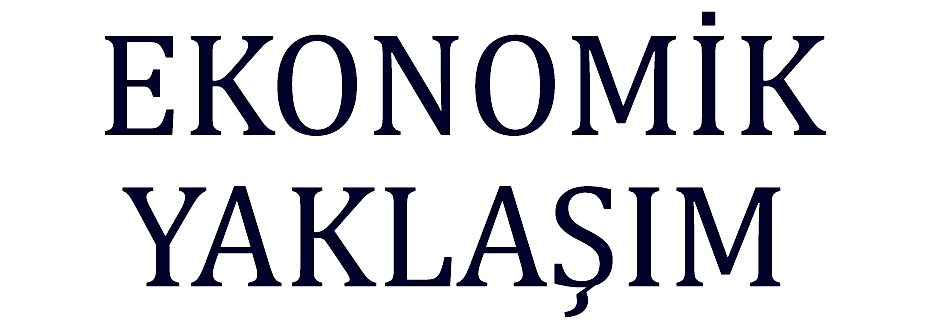
| Original Article | ||||||||||||||||||||||||||||||
Ekonomik Yaklasim. 2012; 23(Special): 39-76 doi: 10.5455/ey.20007 The World Economy from the 1980s to the Global Crisis Tuba ONGUN.
| ||||||||||||||||||||||||||||||
| How to Cite this Article |
| Pubmed Style Tuba ONGUN. [The World Economy from the 1980s to the Global Crisis]. Ekonomik Yaklasim. 2012; 23(Special): 39-76. Turkish. doi:10.5455/ey.20007 Web Style Tuba ONGUN. [The World Economy from the 1980s to the Global Crisis]. https://www.ekonomikyaklasim.org/?mno=34388 [Access: January 03, 2024]. Turkish. doi:10.5455/ey.20007 AMA (American Medical Association) Style Tuba ONGUN. [The World Economy from the 1980s to the Global Crisis]. Ekonomik Yaklasim. 2012; 23(Special): 39-76. Turkish. doi:10.5455/ey.20007 Vancouver/ICMJE Style Tuba ONGUN. [The World Economy from the 1980s to the Global Crisis]. Ekonomik Yaklasim. (2012), [cited January 03, 2024]; 23(Special): 39-76. Turkish. doi:10.5455/ey.20007 Harvard Style Tuba ONGUN (2012) [The World Economy from the 1980s to the Global Crisis]. Ekonomik Yaklasim, 23 (Special), 39-76. Turkish. doi:10.5455/ey.20007 Turabian Style Tuba ONGUN. 2012. [The World Economy from the 1980s to the Global Crisis]. Ekonomik Yaklasim, 23 (Special), 39-76. Turkish. doi:10.5455/ey.20007 Chicago Style Tuba ONGUN. "[The World Economy from the 1980s to the Global Crisis]." Ekonomik Yaklasim 23 (2012), 39-76. Turkish. doi:10.5455/ey.20007 MLA (The Modern Language Association) Style Tuba ONGUN. "[The World Economy from the 1980s to the Global Crisis]." Ekonomik Yaklasim 23.Special (2012), 39-76. Print.Turkish. doi:10.5455/ey.20007 APA (American Psychological Association) Style Tuba ONGUN (2012) [The World Economy from the 1980s to the Global Crisis]. Ekonomik Yaklasim, 23 (Special), 39-76. Turkish. doi:10.5455/ey.20007 |
Why Nations Fail - The Origins of Power, Prosperity and Poverty [Turkish]
Gönül DİNÇER
Ekonomik Yaklasim. 2014; 25(93): 65-76
» Abstract » doi: 10.5455/ey.35517
Dostoevskys Approach to Economics and Critique of the Economic Man [Turkish]
Ceyhun GÜRKAN, Mustafa ÖZİŞ
Ekonomik Yaklasim. 2012; 23(82): 99-128
» Abstract » doi: 10.5455/ey.20004
Effects of Budget Deficit on Current Account Balance: Analysis of Twin Deficits Hypothesis in Case of Turkey [Turkish]
Metin BAYRAK; Ömer ESEN
Ekonomik Yaklasim. 2012; 23(82): 23-49
» Abstract » doi: 10.5455/ey.20001
An Empirical Analysis on the Relationship between Public Sector Size and Economic Growth in Turkey [Turkish]
Ömer Faruk ALTUNÇ, Celil AYDIN
Ekonomik Yaklasim. 2012; 23(82): 79-98
» Abstract » doi: 10.5455/ey.20003
NAIRU Estimation for the Turkish Economy [Turkish]
Özlem YİĞİT; Atilla GÖKÇE
Ekonomik Yaklasim. 2012; 23(83): 69-91
» Abstract » doi: 10.5455/ey.34098
Understanding Developments in Current Accounts and Financial Flows in Light of Discussions on Global Imbalances and Recent Crises [Turkish]
Hasan Cömert, Güney Düzçay
Ekonomik Yaklasim. 2015; 26(96): 59-90
» Abstract » doi: 10.5455/ey.35901
English Title Not Available [Turkish title: TEKNOLOJi TRANSFERi VE GELiŞMEKTE OLAN ÜLKELERiN REKABET GÜCÜ] [Turkish]
Refik ÜREYEN, Metin DURGUT, Müfit AKYOS, Oğuz KARAKOÇ
Ekonomik Yaklasim. 2003; 14(47 - Proceedings): 69-92
» Abstract » doi: 10.5455/ey.10379
A Historical and Current Perspective on Sustainability [Turkish]
Hüseyin Şen, Ayşe Kaya, Barış Alpaslan
Ekonomik Yaklasim. 2018; 29(107): 1-47
» Abstract » doi: 10.5455/ey.39101
English title is not available [Turkish title: Uluslararası Finansal Krizler] [Turkish]
Veysel Çalışkan
Ekonomik Yaklasim. 2003; 14(49 - Proceedings): 225-240
» Abstract » doi: 10.5455/ey.10403
English Title Not Available [Turkish Title:XVII. YÜZYILDA OSMANLILAR VE MERKANTİLİSTLER] [Turkish]
Mehmet BULUT
Ekonomik Yaklasim. 2000; 11(39): 23-35
» Abstract » doi: 10.5455/ey.10334
Animal Spirits: How Human Psychology Drives the Economy, and Why It Matters for Global Capitalism [Turkish]
Gönül DİNÇER
Ekonomik Yaklasim. 2011; 22(81): 129-132
» Abstract » doi: 10.5455/ey.20020
Cited : 5522 times [Click to see citing articles]
THE RELATIONSHIP BETWEEN EXPORT AND ECONOMIC GROWTH, THE EFFECTS OF IMPORT: THE CASE OF TURKEY (1980-1996) [Turkish]
Arslan YIĞIDIM, Nezir KÖSE
Ekonomik Yaklasim. 1997; 8(26): 71-85
» Abstract » doi: 10.5455/ey.10258
Cited : 91 times [Click to see citing articles]
English Title Not Available [Turkish Title:İKİZ AÇIKLAR HİPOTEZİ (TÜRKİYE UYGULAMASI)] [Turkish]
Ahmet ZENGİN
Ekonomik Yaklasim. 2000; 11(39): 37-67
» Abstract » doi: 10.5455/ey.10335
Cited : 89 times [Click to see citing articles]
A Time Series Analysis of Export, lmport and Economic Growth Relations in Turkey [Turkish]
Mustafa ÖZER, Levent ERDOĞAN
Ekonomik Yaklasim. 2006; 17(60-61): 93-110
» Abstract » doi: 10.5455/ey.10619
Cited : 85 times [Click to see citing articles]
A Historical and Current Perspective on Sustainability [Turkish]
Hüseyin Şen, Ayşe Kaya, Barış Alpaslan
Ekonomik Yaklasim. 2018; 29(107): 1-47
» Abstract » doi: 10.5455/ey.39101
Cited : 78 times [Click to see citing articles]








